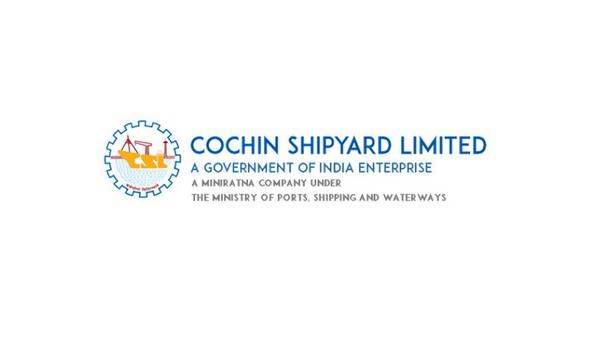Maritime green corridor routes between major port hubs where zero-emission solutions are supported and demonstrated have swiftly become recognised as one of the most important tools to aid industry and governments in the decarbonisation of the maritime sector.
The consortium brings together Anglo American, Tata Steel, CMB, VUKA Marine, Freeport Saldanha, and ENGIE, convened by the Global Maritime Forum, to assess how zero-emission shipping on the corridor can unlock new opportunities for South Africa’s sustainable development and contribute to a just transition to a zero-emission maritime ecosystem.
Maritime supply chain consortium
This powerful maritime supply chain consortium of iron ore miners and shippers, the steel industry, ship owners, freeport operators, and energy suppliers will explore full-scope concepts for the South Africa-EU green corridor development.
The work will look at bunkering and offtake arrangements, available green fuel supplies, and financial and business model alternatives.
Green corridor development
Opportunities for South Africa to establish itself as a key player in the global transition
The consortium’s initiative to explore the development of the green corridor between South Africa and Europe builds on “Shipping’s Energy Transition: Strategic Opportunities in South Africa,” a report prepared by P4G and the Getting to Zero Coalition.
The report identified promising opportunities for South Africa to establish itself as a key player in the global transition to renewable forms of energy and zero-emission shipping.
Maritime traffic in Africa
Situated along busy international shipping routes, South Africa has the highest volumes of maritime traffic in Africa outside of the Mediterranean region, as well as one of the best-connected port systems on the continent that support the trade of valuable commodities.
The development of the green corridor could help drive forward South Africa’s decarbonisation ambitions and serve a range of wider national and international objectives.
Decarbonisation strategy revision
The initiative to explore the development of the green corridor between South Africa and Europe
As the International Maritime Organization prepares to revise its strategy for decarbonisation at the upcoming MEPC 80 meeting.
This consortium’s initiative to explore the development of the green corridor between South Africa and Europe is yet another demonstration that the industry is preparing for a rapid shift to zero-emission shipping that leaves no country behind.
Shipping decarbonisation pathway
“It is fantastic to see this powerful industry consortium come together around a new green corridor with one side in South Africa, particularly as it sends a clear signal of industry action as we go into negotiations at MEPC 80 in July,” says Johannah Christensen, CEO of the Global Maritime Forum.
“We hope this project will lay bare a viable shipping decarbonisation pathway towards real-world implementation, generating sustainable growth and business opportunities for South Africa and the region, with synergies for other sectors of the economy.”
Cross-industry collaboration
This initiative also aligns with Anglo American’s ambition to reach carbon neutrality"
“Cross-industry collaboration is the key to shaping a sustainable maritime industry. We are looking forward to joining other industry pioneers in exploring pathways to zero-emission shipping of iron ore between South Africa, where our Kumba mines produce high-quality iron ore, and Europe, where many of our customers are located,” says Peter Whitcutt, CEO of Anglo American’s Marketing business.
"An important step toward wider industry decarbonisation, this initiative also aligns with Anglo-American’s ambition to reach carbon neutrality for our controlled ocean freight by 2040."
Zero carbon shipping ambition
“Tata Steel is committed to zero carbon shipping ambition and our participation in South Africa- Europe green corridor for Iron Ore is yet another step in this direction,” says Ranjan Sinha, Chief Group Shipping at Tata Steel.
"We believe in just transition wherein the financial risk of a sustainable supply chain is spread across all stakeholders – the supplier, ports, vessel owners, and buyers. The success of this corridor will likely accelerate the shipping industry’s journey towards decarbonised ocean transportation."
Dry bulk vessels
CMB has already built various ship types that run on hydrogen and is building dry bulk vessels"
“CMB is proud to be part of the Green Corridor initiative between South Africa and Europe. CMB has already built various ship types that run on hydrogen and is building dry bulk vessels powered by ammonia,” says Alexander Saverys, Chief Executive Officer at CMB.
"We hope that our track record in the development of green ships will contribute to the success of the consortium and accelerate the deployment of low-carbon vessels on this important trade route."
Maritime value chain
“VUKA Marine is committed to developing solutions that align shared priorities and shared values across the maritime value chain,” says Andrew Mthembu, Chairman of VUKA Marine.
"The Green Corridor concept has the potential to accelerate solutions that can bring environmental priorities to the centre of route development."
Zero-emission future
We are excited to provide insights into the potential production of green fuels, vessel manufacturing"
“As a pioneering special economic zone operator in South Africa, our company is thrilled to join forces with the key players in the industry to support shipping’s transition to a zero-emission future,” says Kaashifah Beukes, CEO of Freeport Saldanha.
"With our expertise, we are excited to provide insights into the potential production of green fuels, vessel manufacturing, and servicing in Saldanha Bay."
Hydrogen value chain
“ENGIE is eager to bring our global expertise and knowledge encompassing the entire hydrogen value chain to accelerate the establishment of the iron ore green corridor between South Africa and Europe,” says Jonathan Debasc, ENGIE’s Managing Director, Flexible Generation & Retail, Africa.
"We are committed to building a carbon-neutral world, and renewable hydrogen is key to decarbonising hard-to-abate and energy-intensive industries such as maritime transportation."













